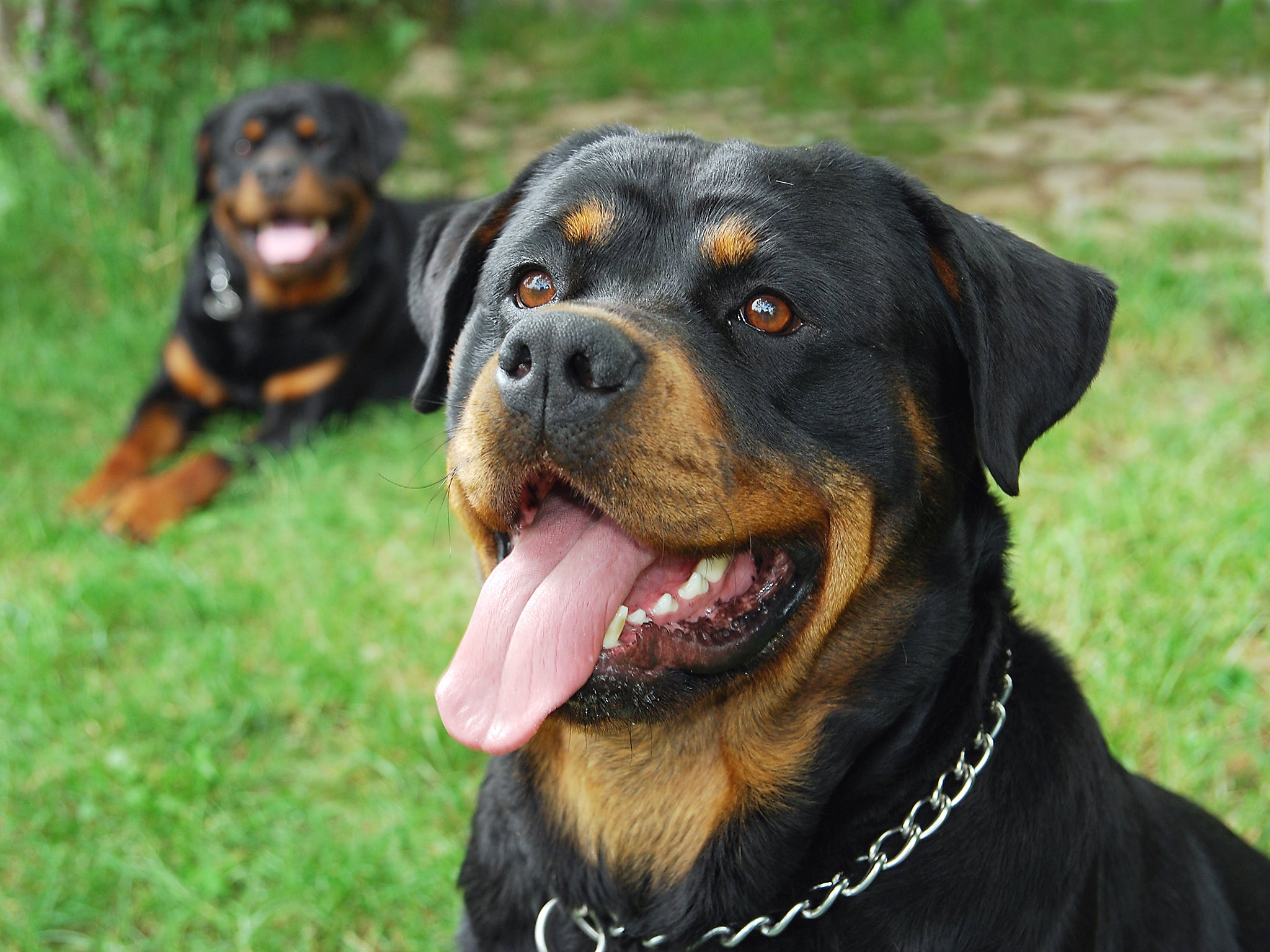Dogs’ innate sense of fairness being eroded by humans, study suggests
It was thought dogs learned their sense of justice from their human ‘best friends’, but tests on wolves show they have a stronger reaction to unequal treatment than their domesticated cousins

Dogs have their own innate sense of fairness and did not learn this from humans as previously believed, a new study has concluded.
In fact the research suggested the opposite may be true – that dogs have learned greater acceptance of inequitable treatment as a result of their close relationship with people.
In tests, wolves and dogs would both refuse to take part if they received no reward for pressing a buzzer while a partner animal got one for doing so. The same was true if they received a lower quality prize.
It was thought that dogs had learned the importance of equality – seen as a sophisticated trait found in humans and some primates – during the domestication process, but the study found the wolves displayed a greater reluctance to take part once they realised what was going on.
Writing in the journal Current Biology, the researchers said the study suggested a sense of fairness in dogs was “not an effect of domestication, but rather were maintained from their ancestors”.
“In fact, the results here and in previous studies on pet dogs suggest that rather than increasing dogs’ response to unequal treatment, their relationship to humans may result in a higher tolerance for unequal treatment, at least from humans," they wrote.
“Life-long positive interactions and training with their human caregivers might prevent dogs from refusing to continue to participate in the experiment due to their willingness to please the human experimenter.”
They said the dogs in the study had been “highly socialised with humans in their first weeks of life” but did not have a pet-owner relationship.
“Nevertheless, they were still more eager to please the human experimenter than were the wolves,” the researchers wrote.
In the tests, dogs and wolves were put in adjoining cages and a trainer then instructed them to press the buzzer.
One of the scientists, Jennifer Essler, of the University of Veterinary Medicine in Vienna, explained what happened next.
“In the no-reward test, only the partner got a treat in every trial. The test animal got nothing," she said.
“In the quality test, both animals got a reward, but the preferred and thus higher quality treat was again given to the partner.
“The ability to realise this inequity became evident when they [the test animal] refused to continue the experiment.”
An animal was deemed to be refusing to cooperate if they moved away from the buzzer and did not respond to 10 commands to “press” or “come”. If this happened, the session was ended.
Animals in decline
Show all 8The results of the test involving different qualities of prize “confirms even more clearly that wolves and dogs really understand inequity,” Ms Essler added.
Tellingly, the animals were happy to press the buzzer for no reward when there was no partner there.
“This showed that the fact that they themselves had not received a reward was not the only reason why they stopped to cooperate with the trainer,” said Ms Essler’s colleague Dr Friederike Range.
“They refuse to cooperate because the other one got something, but they themselves did not.”
The rank of both dogs and wolves in the pack also had an effect on their reactions.
“High-ranking animals become frustrated more quickly by inequity because they are not used to this situation: not receiving something at all or only of lower quality,” Dr Range said.
“Thus, the hierarchy in their pack is directly linked to their reaction to inequity.”
Subscribe to Independent Premium to bookmark this article
Want to bookmark your favourite articles and stories to read or reference later? Start your Independent Premium subscription today.

Join our commenting forum
Join thought-provoking conversations, follow other Independent readers and see their replies